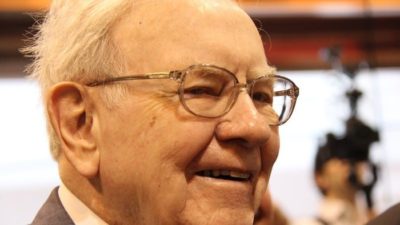I reckon that most Foolish investors would class themselves as long-term investors; looking to achieve decent capital growth, with low risk, and of course, a reliable, attractive and growing stream of dividends.
If the recommendations we provide can — on average and over time — outpace the broader market, and deliver a good deal of the returns in the form of regular, rising and attractive dividends, then it's job done. More so if we can offer some practical investing insights along the way.
The trouble is, the approach we advocate is, well, boring. At times, it may even seem to border on neglectful.
Our commentary is sparse, and usually has nothing to do with what's been happening on financial markets. More often, we encourage members to ignore much of the financial media and dismiss most short-term share price movements as unimportant — even for the companies on our scorecard.
As long-term Motley Fool members can attest, we usually spend our time preaching (ranting?) about patience, discipline and objectivity. (And quite often the teachings of some octogenarian from Omaha.)
I'll admit I struggle to find new things to write about each week. As Wall Street columnist Jason Zweig has said:
"My job is to write the exact same thing between 50 and 100 times a year in such a way that neither my editors nor my readers will ever think I am repeating myself."
The reason, as Zweig says, is that although markets are forever changing, good advice rarely does. He continues:
"..while people need good advice, what they want is advice that sounds good.
"The advice that sounds the best in the short run is always the most dangerous in the long run. Everyone wants the secret, the key, the roadmap to the primrose path that leads to El Dorado: the magical low-risk, high-return investment that can double your money in no time. Everyone wants to chase the returns of whatever has been hottest and to shun whatever has gone cold. Most financial journalism, like most of Wall Street itself, is dedicated to a basic principle of marketing: When the ducks quack, feed 'em."
The Challenge Of Doing Nothing
Not only can good advice seem repetitious, but following it most often requires us as investors to do nothing.
And that can be hard — very hard. We are forever encouraged, by the media and all manner of financial pundits, to take action. To do something, anything, other than sit on our hands.
There are a number of studies that reveal our desire for stimulus, but easily my favourite is the one from Professor Tim Wilson at the University Of Virginia.
In his experiment, Wilson asked his subjects to sit quietly in a room and do nothing for 15 minutes. However, there was a button, which if pressed would administer a mild electric shock to the subject. Each participant had previously been given a sample of the shock, and all had said they would pay to avoid being shocked again.
But get this; 67% of men and 25% of women self-administered the shock while sitting in the room alone. So abhorrent was the idea of doing nothing, even for just 15 minutes, that many participants actually chose to give themselves an electric shock!
Can we relate this study to investing? When prices are falling, it seems almost reckless to stand by and ignore the 'loss'. In October 2014, the S&P/ASX 200 (Indexasx: XJO) (ASX: XJO) dropped 8.4%, including a single day drop of 2%, which may have been hard to ignore for some investors.
Similarly, resisting the urge to 'take profits' can take almost superhuman strength. Australian Pharmaceutical Industries Ltd (ASX: API) has seen its shares soar 120% since the start of this year, while others like Liquefied Natural Gas Ltd (ASX: LNG) are up more than 1,000% since January 2014.
In many cases, when invested in a quality company with bright prospects, selling is usually the worst thing you can do.
As famed investor Benjamin Graham once said: "The investor's chief problem – and even his worst enemy – is likely to be himself." Don't let your desire to take action get in the way of good long term returns. Instead, sit back and let time, and the power of compounding, do its thing.
Foolish Takeaway
If reactive, hyperactive trading strategies sound more exciting, it's because they are. Unfortunately, they are also time consuming, stressful, costly and unlikely to deliver decent returns.
Long term, income focused investment, on the other hand, is fairly dull; the principles don't change and you'll spend much of your time doing very little. But if you are looking to build real and lasting wealth, and to generate an attractive and consistent income stream, you're in the right place.








